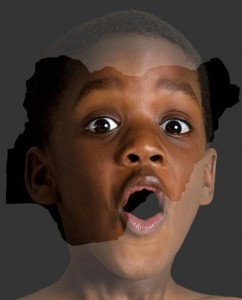
Traditional Igbo Wedding
There is a saying in Igbo land that a woman is not only marrying the husband but also the husband’s family. In Igbo tradition, traditional wedding is an affair of the entire family, including extended families and the villages. Igbo has the same marriage custom with little minor differences in different communities, even within the same town or village. It’s often patterned according to dictates of the kinsmen.
Introduction: There are two major stages involved in traditional Igbo wedding. The intending groom is expected to visit his bride’s family at least twice. In the first visit, he is to be accompanied by his father or an elder in the family in a situation where his father is late or a close family relation or friend. This visit is to make known his intention towards the would-be bride. At this visit, they would agree on another time for the second visit where other members of the families would be present.
At the second visit, the groom’s family could be of any number and accompany their brother to restate his intention towards marrying his bride. However, after the first visit, the bride’s family would be expected to make investigation about the nature of the groom’s family and make decision as to continue with the marriage or not.
In this visit, as I wrote earlier, different communities and kinsmen have their demands from the groom. If you compare lists from different villages and kinsmen, you will find slight difference but there are common items that are dominant. They include kola nuts, wines (could be of any sort), wrappers (Nigerian/Holland prints) and cash gift could be added.
Engagement: This is popularly known as Igba Nkwu in almost all part of Igbo land. At this stage of the marriage process, the bride’s kinsmen would have given the groom’s family or kinsmen a list of things they would present at the engagement. The list is usually sent after the introduction and the items have a symbolic significance. The kinsmen or family of the bride could determine whether it would be close door event with family members in attendance or big event where the entire family could attend.
.Remember, the items are not exhaustive. You could have more or less depending on bride’s kinsmen. Here is a picture of what it may look like.
First Segment: The lists for All Kindred Daughters, popularly called UMUADA include the following:
-
Wrappers: George/Hollandis/Nigerian wax
-
Hand bags and jewelry comprising gold-plated earrings, necklaces of any colour
-
Head ties and Shoes consisting of varying sizes and colours
-
Toiletries consisting of washing detergent, bathing soaps, cream and lots more
-
Food items and beverages
-
Drinks comprising malt and minerals
-
Cash gift of a lump sum
Second Segment: This stage is called Nmanya Ukwu meaning the big wine for Umunna, the kinsmen. This is usually shared among heads of bride’s extended family
-
Gallons of wine
-
Cartons of Beer, minerals and malts
-
Bottles of Seaman’s Schnapps
-
Kola nuts
-
Heads of tobacco with potash
-
Rolls of cigarette
-
A goat
-
Cash gift called Ego Umunna
In this segment, other cash gifts may be demanded. The price may differ from one community to another. It includes cash for the following:
-
Bringing down symbolic pot (Ego nfotu ite) – ₦1,000
-
Toasting wine (Ncha Kishi udu) ₦1,000
-
In-laws money (Ego Ogo cherem) ₦50,000
-
Future maternity (Ego future maternity) ₦1,000
-
Village chief (Ego Onye Eze) ₦1,5000
-
Lump cash (Ogwe Ego) ₦5,000
Third Segment: Called opening of gate (N’mepe Uzo), the item on this segment include the following:
-
25 tubers of yam
-
2 bags of salt
-
2 bags of rice
-
2 cartons of Star Beer
-
2 cartons of Guinness Stout
-
2 cartons of Maltina
-
2 cartons of Minerals
-
3 bottles of Seaman’s Schnapps
-
1 gallon of red palm oil about 10 – 25 litres
-
30 bulbs of onions
-
1 gallon of groundnut oil (25 litres)
-
25 loaves of Bread
-
2 pieces of Goat leg
-
A basin of stockfish
-
1 carton of Tin Tomatoes
-
1 carton of tin Milk
-
1 carton of Tablet soap
-
20 pieces of Morning Rose powder
-
1 gallon of Kerosene
-
20 heads of Tobacco
-
3 pieces of umbrella
-
2 big Basins
-
2 pieces of Igbo Blouse
-
10 packets of cigarettes
-
5 pieces of George/Nigerian/Hollandis wax
-
1 big Box
-
2 pieces of head ties
-
Jewelry
-
A piece of Lantern
-
Bride price negotiation
Another demand that must be met is that of the Umuada and Umunna of the clan or kinsmen where the bride is coming from. Their demand, often non-negotiable, must be met before the bride is let out of her family.
One important thing to note is that items need at the general gathering vary from one village or clan to another. In most cases, the father of the bride would waive most of the things that would have come to his family to ease the burden on his daughter’s groom. In such instance, he might request just two pieces of the item that are needed.
Dressing for the occasion depends on the parties involved. Often times, the important thing is to choose an attire that will match the harmony of the traditional marriage. The bride is often beautified with waist beads, coral beads, waist chains, rings and gold-plated earrings.
It is important therefore that if anyone wants to get married, he should go home and make the necessary enquiry before jumping into the exercise properly.

Recent Comments